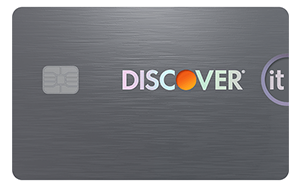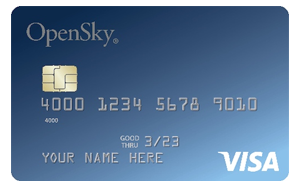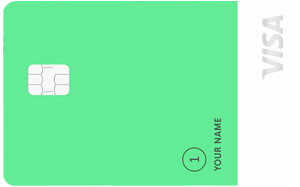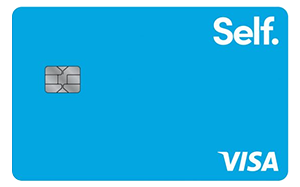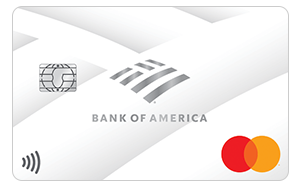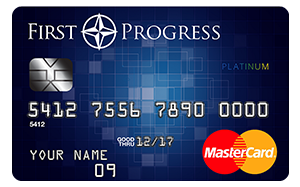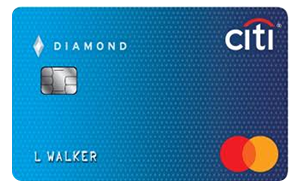Table of Contents
What is considered a bad credit score?
Some people consider anything below the “good” range in the main scoring models to be a bad credit score. (The good range starts at 670 for FICO and 661 for VantageScore.) Others consider a bad score to be anything below the minimum score that lenders require for opening new lines of credit, or a score below the national average credit score (which is currently 716).
The truth is that there’s no clear dividing line between a low credit score and a high credit score because it ultimately comes down to your personal goals, the scoring model you’re using, and who’s evaluating your credit score.
The main credit scoring models have different score classifications, and lenders have different minimum credit score requirements, depending on the type of credit and the terms and interest rates you’re looking for. Some scoring models even have different scoring ranges altogether, such as the specialized FICO Bankcard and Auto industry scores (which have a range of 250–900, in contrast to 300–850 used in FICO’s standard models).
This complicates the question of what counts as a poor credit score. Fortunately, there’s enough overlap to get a decent idea of what scores are generally considered bad.
How the major scoring models classify different score ranges
Although both FICO and VantageScore use a credit score scale that ranges from 300 to 850, they have different ways of distinguishing between bad, fair, good, and excellent credit scores:
FICO’s score classifications
| Very poor | Fair | Good | Very Good | Exceptional |
|---|---|---|---|---|
| 300 to 579 | 580 to 669 | 670 to 739 | 740 to 799 | 800 to 850 |
VantageScore’s score classifications
| Very poor | Poor | Fair | Good | Excellent |
|---|---|---|---|---|
| 300 to 499 | 500 to 600 | 601 to 660 | 661 to 780 | 781 to 850 |
How a poor credit score can affect you
A low credit score can make it hard to get a loan or credit card, rent an apartment, or get a job. What’s more, you’re also missing out on lower interest rates, larger credit card limits, and other benefits of good credit.
Here are a few of the specific challenges you’re likely to face if you have bad credit:
Difficulty getting approved for mortgages and other loans
A bad credit score usually indicates a payment history with late payments or a pattern of borrowing too much. These red flags will make banks and lenders hesitant to offer you credit, especially large or unsecured loans and credit cards.
Lenders usually set their own credit score requirements, and they tend to be particularly selective about who they approve for large loans, such as mortgages.
Here are the credit scores generally required for different types of mortgages:
- FHA-backed mortgage: You need a credit score of 500 to get a mortgage backed by the Federal Housing Administration (FHA), and you need a score of at least 580 to qualify for maximum financing (which requires a down payment of only 3.5%). 1
- Conventional mortgage: You usually need a credit score of at least 620 to qualify for a conventional mortgage, which is the minimum score required by the Federal National Mortgage Association (Fannie Mae)] and Federal Home Loan Mortgage Corporation (Freddie Mac). 2 3
- VA loan: The US Department of Veteran Affairs doesn’t impose a minimum credit score requirement for VA loans. 4 They instead leave it up to lenders, whose credit score requirements vary widely, often ranging from 580 (e.g., Caliber Home Loans) to 620 (e.g., Quicken Loans).
- USDA loan: You generally need a credit score of 640 or higher for a USDA loan, although you may be able to qualify with a lower credit score if you provide documentation showing that you’ll be a reliable borrower. 5
Higher interest rates and less favorable loan terms
While there are credit cards for bad credit, as well as bad credit loans, they generally come with worse terms, including higher interest rates and annual fees.
These additional costs can make it difficult to keep up with payments. If you end up missing payments or defaulting, then your credit score could dip even lower, trapping you in a vicious cycle of bad credit and heavy debt.
| Credit Card | Best For | Credit Score | Annual Fee | Welcome Bonus | |
|---|---|---|---|---|---|
| Bad Credit Overall | 300–669 | $0 | Cashback Match | ||
| Secured | 300–669 | $0 | |||
| Unsecured (No Deposit) | 300–669 | $0 | |||
| No Interest | 300–669 | $0 | |||
| No Credit Check | 300–669 | $35 | |||
| No Fees | 300–669 | $0 | |||
| High Credit Limit | 300–669 | $39 ($0 for the first year if you set up autopay) | |||
| Rewards | 300–669 | $0 | |||
| Building Credit | 580–739 | $0 | |||
| Credit Card | Best For | Credit Score | Annual Fee | Welcome Bonus | |
|---|---|---|---|---|---|
| Secured Overall | 300–669 | $0 | Cashback Match | ||
| No Credit Check | 300–669 | $35 | |||
| Beginners | 300–669 | $25 | |||
| No Annual Fee | 300–669 | $0 | |||
| Bad Credit | 300–669 | $49 | |||
| Rebuilding Credit | 300–669 | $0 | |||
| Credit Card | Best For | Credit Score | Annual Fee | Welcome Bonus | |
|---|---|---|---|---|---|
| Secured | 300–669 | $0 | Cashback Match | ||
| Unsecured (No Deposit) | 300–669 | $39 ($0 for the first year if you set up autopay) | |||
| Beginners | 300–669 | $49 | |||
| Students | 580–739 | $0 | Cashback match | ||
| No Annual Fee | 300–669 | $0 | |||
| High Approval Odds | 300–669 | $35 | |||
| Building Credit | 300–669 | $0 | |||
| Credit Card | Best For | Credit Score | Annual Fee | Welcome Bonus | |
|---|---|---|---|---|---|
| No Credit Overall | 300–669 | $0 | Cashback Match | ||
| Starters | 300–669 | $49 | |||
| Students | 580–739 | $0 | Cashback match | ||
| No Credit Check | 300–669 | $35 | |||
| No Annual Fee | 300–669 | $0 | |||
| Unsecured (No Deposit) | 300–669 | $75 for the first year ($48 after) | |||
| High Credit Limit | 300–669 | $39 ($0 for the first year if you set up autopay) | |||
| Instant Approval | 300–669 | $75–$99 the first year, then $99 annually | |||
| Beginners | 300–669 | $0 | |||
Problems getting a rental unit or an insurance policy
It’s common for landlords and insurance companies to check your credit to assess how likely you are to make your payments on time or file an insurance claim. Some landlords and property management agencies impose a minimum credit score requirement for renting an apartment, so a low credit score can make it harder to get your applications approved. You’ll also probably pay more on your insurance premiums.
More expensive utility and cell phone services
Many people don’t realize that basic utilities and services like electricity, water, and cell phone plans are types of credit. They’re considered “open credit” because your provider is extending service to you in exchange for repayment at the end of the month.
This means you may need to pay more for them if you have a low credit score. Similarly, if you have bad credit, then utility and cell phone companies might require you to pay a security deposit before they activate your account.
Difficulty securing employment
Some employers run credit checks as part of their background checks when hiring or promoting candidates. As a result, they’ll be able to view your credit history and might interpret negative marks such as missed payments or bankruptcies as a sign that you don’t manage responsibility well.
Serious issues with credit or debt can also make it hard to get a security clearance because they suggest that you’re in financial trouble and might be vulnerable to bribery.
If you’re applying for a job and you think your potential employer will run a credit check, then review your credit reports from the three major credit bureaus (Equifax, Experian, and TransUnion) so that you’re prepared to answer their questions about your credit history.
If you have good reasons for the derogatory marks on your reports (such as unexpected medical bills that led to missing payments), make sure to volunteer that information.
7 ways to fix a bad credit score
If you’ve been struggling to pay off debts, or your credit score suddenly dropped for reasons out of your control, it can be debilitating to your lifestyle. Thankfully, there are always steps you can take to fix your credit, but it’s not always an easy or quick process. With some patience and determination, you can get on the right track by following these 7 tips:
1. Make on-time payments
Payment history is the most important factor contributing to your credit score. It accounts for 35% of your score in FICO’s model and 40%–41% in VantageScore’s.
For this reason, making consistent on-time payments is the most reliable way to improve your credit score. If you sometimes forget to pay on time, consider setting up autopay.
Make sure you have enough money in your checking account to cover your bill payments. You can do this by scheduling your automatic payments to go through just after your regular payday (if you have one). If you have several bills due on the same date and have trouble paying them all on time, ask your creditors if they can change your due date.
Contact your creditor if you’re struggling to keep up with your payments
If you get into financial trouble or find yourself overwhelmed by debt, then speak to your creditor as soon as possible. They might not advertise it, but many creditors offer hardship programs to people struggling with debt.
Your creditor might offer:
- Reduced interest rates
- Smaller minimum payments
- Custom repayment schedules
These allowances are usually temporary, but they might give you the boost you need to get on top of your debt.
2. Manage your credit balances and request higher credit limits
The proportion of your available credit that you’re using (known as your credit utilization rate or debt-to-credit ratio) also affects your credit score. Increasing your credit limit can help your credit score—as long as your spending doesn’t increase as well—because the scoring models reward consumers with lower utilization rates.
Alternatively, you can transfer balances or adjust your budget to ensure that none of your cards has a utilization rate above 30%. Bear in mind that in addition to your overall utilization rate across all of your accounts, the utilization rate for each account also affects your credit score. 6
Ideally, your credit utilization rate (both your total rate and the rate for each card) will be under 10%. 7 If that’s not attainable, make sure to keep your utilization rate under 30%.
3. Check your credit reports and any dispute errors you find
Errors on your credit report can seriously affect your credit score and your prospects when it comes to opening new credit accounts. A study by the Federal Trade Commission found that 5% of people had errors on their credit reports that could affect their loan prospects. 8

Under federal law, you have the right to request a free copy of your credit report from each credit bureau once every 12 months (currently every week due to the COVID-19 pandemic). 9 You can get your credit reports at AnnualCreditReport.com. Some sites like this are scams, but using AnnualCreditReport is safe (the website is actually authorized by the federal government to provide your credit reports.)
Common credit reporting errors
The Consumer Financial Protection Bureau identifies four common errors that you should look out for on your credit reports: 10
- Incorrect personal information: These errors include another person’s account mistakenly being added to your report, credit activity resulting from identity theft, and errors in your name, address, or phone number.
- Incorrect account status: These include closed accounts mistakenly being reported as open, the same account being listed multiple times, and accounts in good standing being reported as delinquent.
- Balance errors: These are mistakes in your current balance or credit limit.
- Data management errors: These mistakes happen when errors you’ve disputed are reinserted into your credit report or the same account is listed under multiple creditors.
Bear in mind that your credit reports will likely vary from bureau to bureau because creditors don’t always report account information to all three credit bureaus, so you should review all of your credit reports.
If you spot an error, dispute the information on your credit report by sending a dispute letter requesting its removal to the bureau in question. If it seems like the error originated with one of your creditors (e.g., they reported a debt as late that you actually paid on time), send a letter to them too.
4. Avoid opening too many accounts
Every new account that you open will increase your overall credit limit, boosting your credit score in the long run.
However, opening a new credit card will hurt your credit in the short term for two reasons:
- The application will trigger a hard inquiry: Applying for credit usually triggers a hard inquiry, which will cause your credit score to drop by around five points. 11
- It will lower the average age of your accounts: The length of your credit history is one of the factors that make up your credit score. The scoring models calculate the length of your credit history by considering the average age of your credit accounts, which will decrease when you open a new credit card.
If you have a large number of open accounts, then you also run the risk of having your application rejected. Lenders sometimes interpret a large number of active credit accounts as a sign that you’re struggling financially.
Boost your score by getting credit for rent and utility payments
Rent and utility payments aren’t usually automatically reported to the credit bureaus. You can sign up for Experian Boost for free to record your phone, utility, and streaming service payments on your Experian credit report. To report these bills to the other bureaus, you can sign up for paid services like PayYourRent or LevelCredit.
5. Become an authorized user or find a cosigner
If your credit isn’t stellar but you have a close friend or family member with a strong payment history, then you can ask them to cosign a loan for you or add you as an authorized user to their credit card account.
Be aware of the risks involved with both of these options, as being an authorized user affects your credit score. If you’re an authorized user on someone’s account, then you’ll get the benefits of their good payment history, but your score will also suffer if they miss a payment.
Moreover, when someone cosigns a loan for you, it means they’re agreeing to take full responsibility for repaying the loan if you can’t make your payments. However, the loan will build your payment history and add to your credit mix, boosting your score.
6. Consider taking out a credit-builder loan
Credit-builder loans are designed for people who are looking to safely build credit.
They’re different from other types of loans in that you don’t receive the borrowed amount upfront. Instead, your lender deposits the funds into an account and you only receive the money after you’ve repaid the loan. Sometimes, your lender will reimburse some of your interest or the other costs of borrowing.
7. Ask for professional help
Rebuilding your credit is challenging. Thankfully, there are credit repair companies and credit counselors out there who can help. Take some time and research different options, making sure to check each company’s reputation and business history to avoid being scammed.
Takeaway: Scoring models define a bad credit score as anything under 670 (FICO) or 661 (VantageScore).
- There’s no clear line between good and bad credit scores because they’re produced by different scoring models, and lenders have separate credit score requirements.
- You can get loans or credit cards with bad credit, but their high fees and interest rates may mean you’d be better off improving your credit first.
- A bad credit score can make it difficult to open new lines of credit, and it can also interfere in your search for an apartment or job because landlords and employers often run credit checks.
- There are several ways to turn a bad credit score into a good score, but most are long-term solutions that involve carefully managing your credit accounts.

